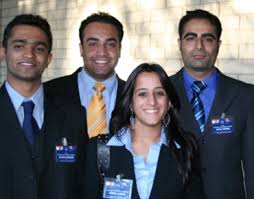 Melbourne, Mar 22: In a significant reform of the immigration laws affecting international students, Australia has eased the financial requirements for the visa applicants from "high risk" countries like India, China and Pakistan.
Melbourne, Mar 22: In a significant reform of the immigration laws affecting international students, Australia has eased the financial requirements for the visa applicants from "high risk" countries like India, China and Pakistan.
International students from the so-called high risk countries would not be assessed according to the stringent Assessment Level 4 and 5 criteria now as they have been removed. The changes have been made to implement the recommendations made by the a 'Review of the Student Visa Assessment Level Framework 2013' and would come into effect from March 22.
"This is certainly good news, especially for Indian students who can now realise their dream of getting quality education in Australia," says a Melbourne-based education and immigration consultant Jag Khairra.
"The change in assessment levels for countries like India, Nepal, Bangladesh and Pakistan will help boost number of students from these countries," he opined.
The direct implication of the March 22 changes would be that the international students from countries like India, China and Pakistan would have to show lesser amount of money in order to gain entry to Australia. These students would be now be required to provide evidence of funds for 12 months' study in Australia instead of 18 months.
"Great news for students from India who will now show half the funds for diploma-level courses than before," said a Sydney-based vocational college owner, Moninder Singh, in a communique to IANS.
"This would mean students from countries like India and Pakistan would be able to apply for a student visa with up to A$20,000 (approximately Rs.1.1 million) less in the bank," Moninder Singh added.
This announcement is likely to be welcomed by the Vocational Education and Training (VET) and English Language Intensive Courses for Overseas Students (ELICOS) sector institutes who have been affected by a significant downturn in the number of international student enrolments.
"The VET sector, which has been struggling from the last three-four years, shall see the revival in the education industry," Khairra said while talking to IANS.
The Australian VET sector providers experienced a dramatic drop in the number of enrolments from India after the alleged racist attacks on south Asian students in 2009. The plummeting graph became much worse as the Labour government decided to tighten the visa laws for students from higher Assessment Level countries (e.g. India, China, Pakistan, Nepal, Sri Lanka, etc.) studying in the VET institutes.
Even before the latest reforms, Australian has been gaining traction as a favoured destination for Indian students wishing to study overseas. The overall number of Indians applying for Australian student visa has experienced a dramatic increase (115 percent) in the past one year or so. The visa grants from India has also gone up in three figures.
Even though the number of Indian students getting Australian visa is very small compared to the pre-2009 figures, the South Asian country continues to be the second-largest source country for international student enrolments in Australia.




Comments
Add new comment